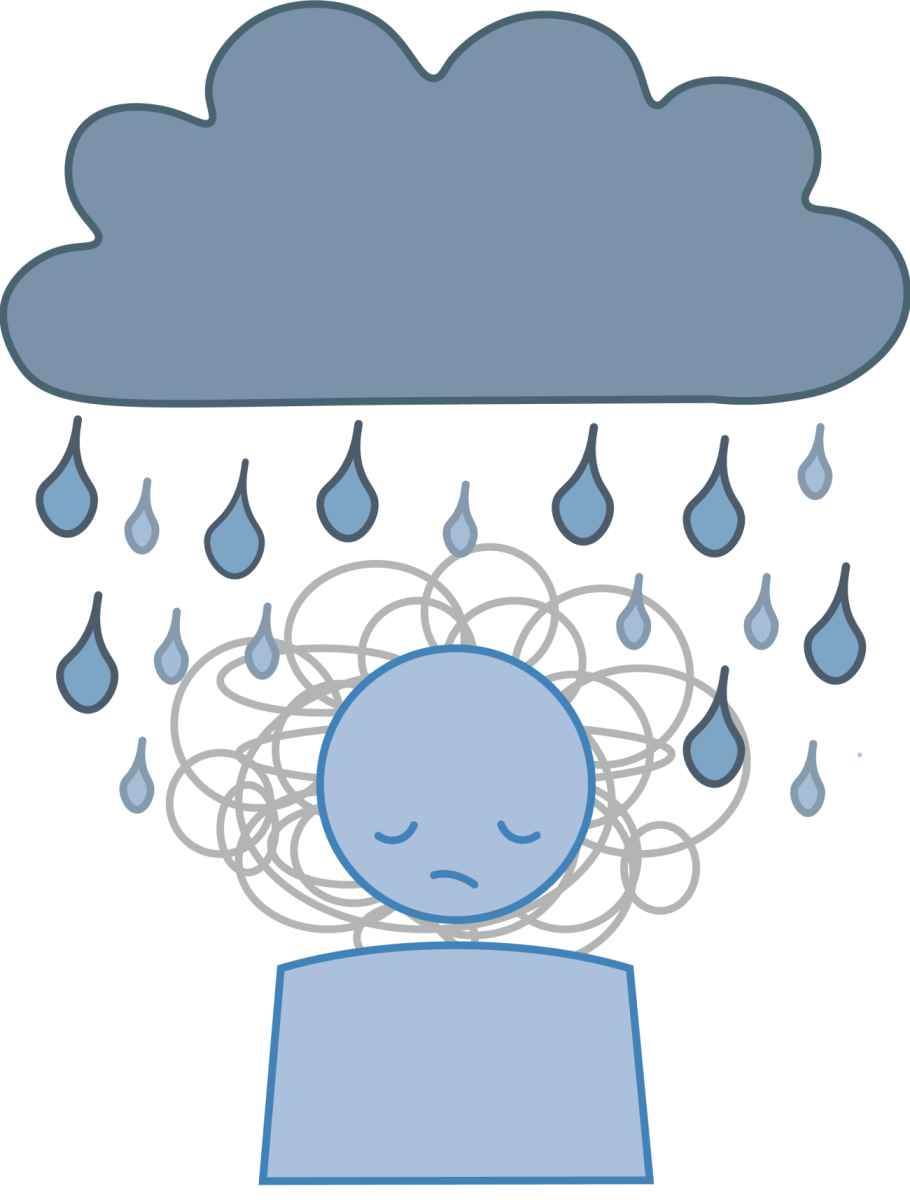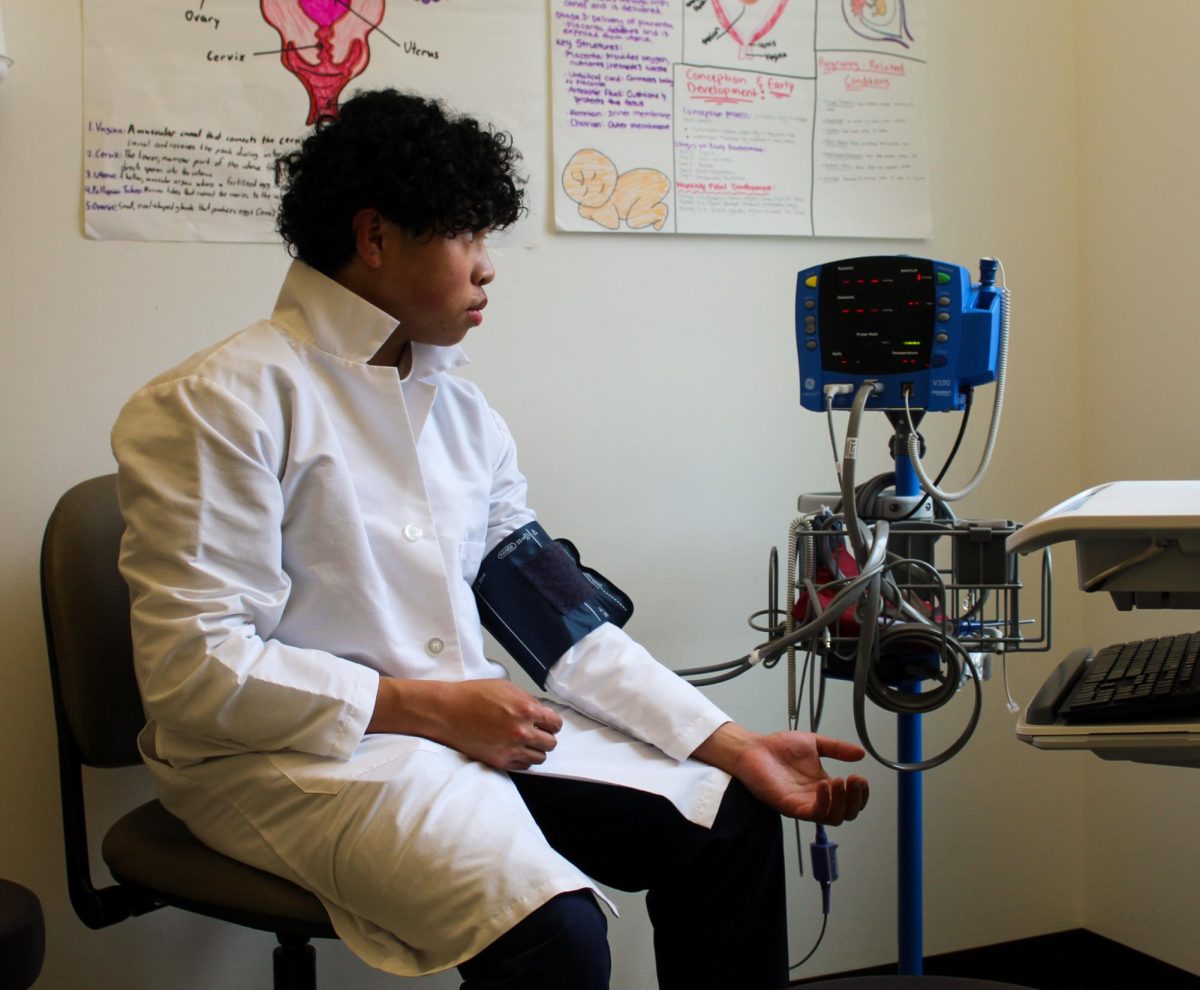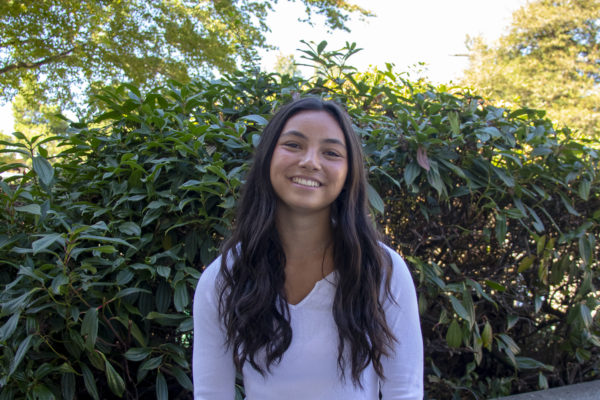During the gloomier winter months, Seasonal Affective Disorder (SAD), otherwise known as seasonal depression, is a common occurance amongst a majority of teens according to the National Institute of Health. Teens can have symptoms such as severe anxiety, extreme fatigue, and burnout. Life in the Pacific Northwest means people often live in constant darkness during the winter months. In a poll of 65 students, 63% said that they have experienced seasonal depression. Students with seasonal depression also said that they feel less motivated to participate in class and extracurriculars they would normally find enjoyable.
Junior Rustam Lohrenz* (he/him) said that shorter and darker days are the main reasons for his seasonal depression. He said that if he were in a warmer climate his symptoms would not be as severe.
Freshman Lilly Adami* (she/her) agreed that the darker weather and shorter days altered her emotions. She also said that the weather affects her energy levels, causing her to experience mood swings and fatigue more frequently.
Lohrenz and Adami both said that their seasonal depression has worsened because they can’t participate in their usual outdoor activities. They said that shorter and colder days have kept them indoors for longer periods of time, creating a feeling of emptiness.
“When it’s raining and there’s harsh weather, I won’t want to go anywhere, and I’ll just want to stay inside,” Adami said. “It’s just colder, and I feel like I’m trapped because I can’t do as much stuff as I would during the summer.”
Most surveyed students that have reported a lack of motivation during the winter connect it to seasonal depression. Students said that extreme fatigue and low energy levels
have made it harder to get out of bed.
Junior Zorka Rubio* (she/her) said that she has a difficult time trying to find things to motivate herself.
“Motivation is a lot harder to find, because you just don’t feel like doing anything. You aren’t compelled to do much at all.” Rubio said.
Students said they struggle more to pay attention in school and to complete homework. Rubio agreed with the results of the survey, and said her inability to concentrate has influenced her performance on tests. This brings down her overall grades during the second quarter of the school year, as well as her learning opportunities in class.
“It’s really hard to focus sometimes; you just don’t feel like paying attention or listening, so you just ignore it. Then you completely miss out on any learning.”
Burnout, a feeling of complete mental, physical and emotional exhaustion, is common amongst students with seasonal depression, impacting their daily activities. Adami shared she is exhausted from going to practice daily, and wants a break from the everyday pressure of sports.
“I don’t have any energy to go because I’m so tired. I won’t want to do anything except just go home,” Adami said.
Rubio said seasonal depression decreases her passion and drive to participate in extracurricular activities.
“It’s pretty much just depression itself; you don’t feel like doing activities that make you happy,” Rubio said, “So you don’t have that source of happiness to support your mental health.”
Everyone experiences seasonal depression differently and this requires a variety of ways to cope. Rubio said she doesn’t have a specific way to alleviate her symptoms, she just urges herself to complete tasks even though it doesn’t always work.
“I usually just force myself to do tasks. Just because I’m feeling bad, I still force myself to get up and do homework. Sometimes it works. Sometimes it doesn’t,” Rubio said.
Healthy relationships are also valuable to those who are struggling with seasonal depression, because of how important it is for students to have an emotional support system, according to the National Institute of Mental Health. Lohrenz said his friendships help distract himself from symptoms of seasonal depression, because they give him a place to vent and be himself.
“I just try to think about other things that I can do to distract myself. Like plan something fun on the weekends if I can, and try to hang out with my friends more often when I’m feeling down,” Lohrenz said, “Having someone who is always there for you is useful, because you feel a lot more validated with emotions.”
Conversely, Rubio finds that her relationships with her friends and family become harder to maintain. However, she said she is relieved knowing that her friends and family will always be there for her.
“During the seasonal months I usually get into more arguments with my family. I don’t hang out with my friends as much so tension builds, but they’re usually really understanding,” Rubio said.
Students frequently struggle to alleviate their symptoms of seasonal depression. Many reported that they’ve been unable to receive proper aid, and accommodations were denied by teachers.
Many students can’t find a way to escape seasonal depression with the pressures of school, sports and relationships. Students feel many different emotions when battling seasonal depression, and this is damaging to their mental health. A surveyed student, junior Marcella Hirsch* (they/them) shared how they continue to live with the weight of seasonal depression.
“You feel messy, you feel disgusting, you feel disoriented. It really is an unpleasant feeling. And the worst part about it, is that it’ll always feel like you can never get rid of it, it’ll always be there, bringing you down with it.”
* Student’s names have been changed for anonymity using a random name generator.











